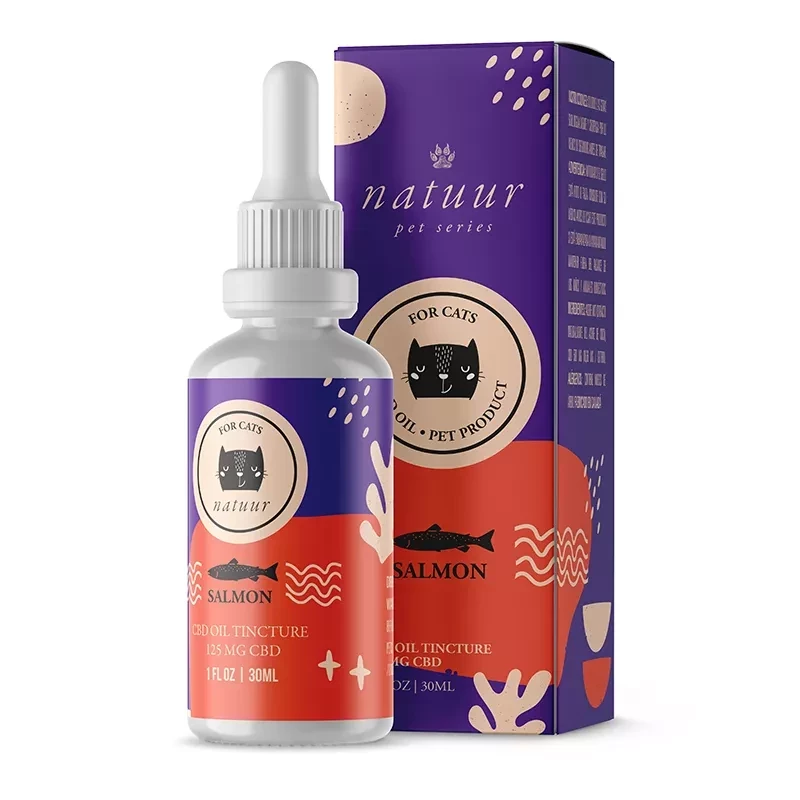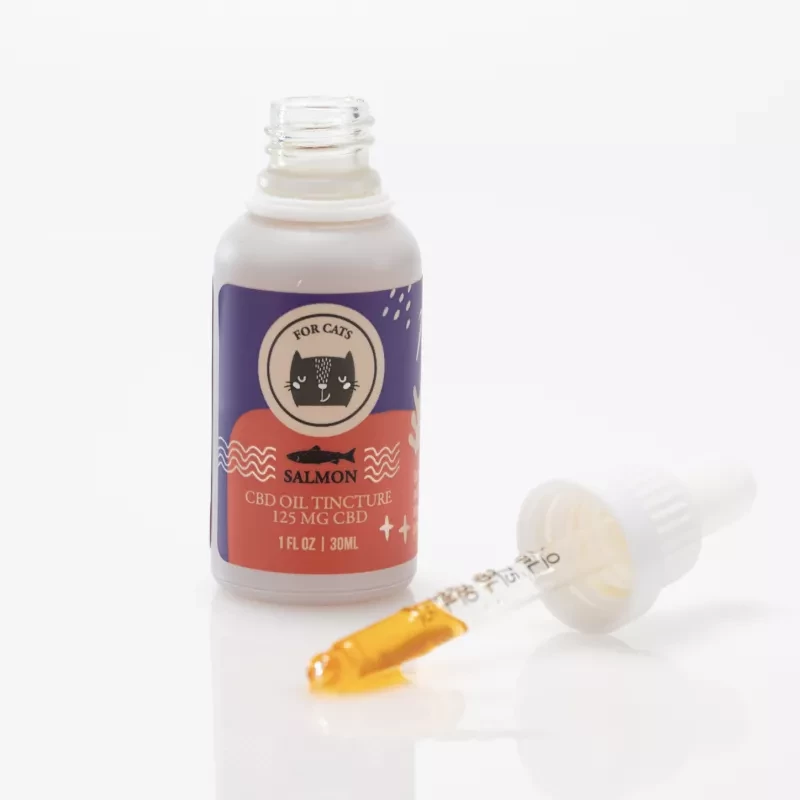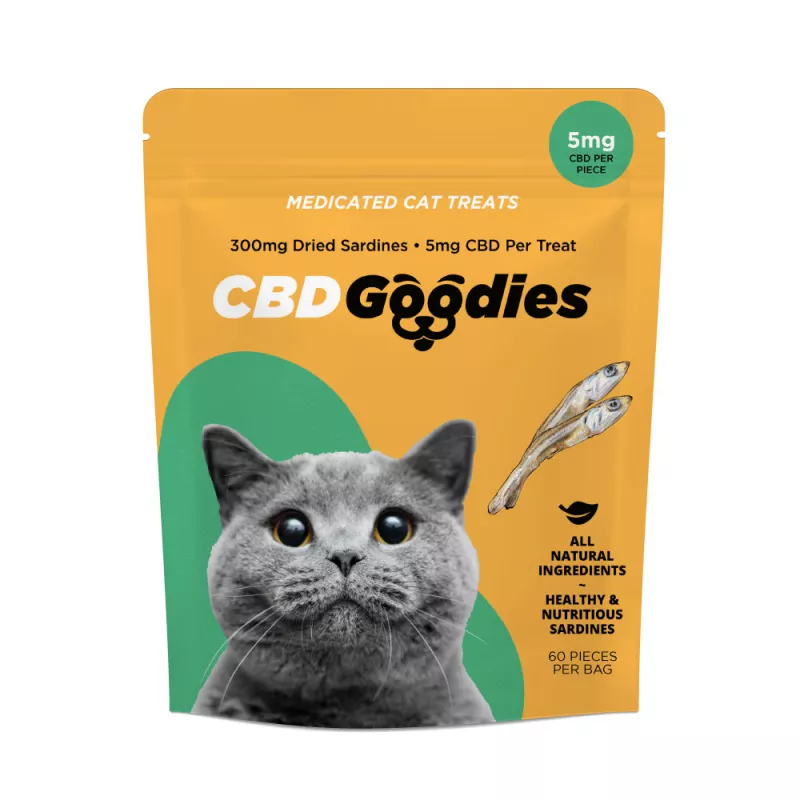- Shop All
- Type
- (144) THC>
- (74) CBD>
- Need
- Sleep>
- (21) Pain>
- (10) Anxiety>
- (6) Pets>
- (88) Edibles
- (14) CBD Edibles>
- (60) THC Edibles>
- (3) Ratio Edibles>
- (33) Hybrid Edibles>
- (86) Vegan>
- (5) Beverages>
- Strain
- (29) Indica>
- (24) Sativa>
- (47) Hybrid>
- (14) Tinctures
- (5) Anxiety Tinctures>
- (9) CBD Tincture>
- (1) Pain Tincture>
- (4) Ratio Tincture>
- (4) Sleep Tincture>
- (4) THC Tincture>
- (4) Capsules
- (1) CBD Capsules>
- (0) THC Capsules>
- (3) Ratio Capsules>
- Foggers
CBD for Pets Benefits
Lexie LivingstonApril 13, 2022LatestContents
If you've ever owned a dog who gets afraid during thunderstorms or a cat who has arthritis, you know that pets frequently have issues that we want to solve, even though it may seem impossible. It's difficult to watch your pet suffer and feel powerless to assist. However, there may be a new remedy for some health issues: CBD for pets Canada.
What is CBD, exactly? Cannabidiol is the longer name for the chemical present in the cannabis plant, which is most commonly linked with marijuana. The most important thing to remember is that CBD will not make your pet high. THC, or tetrahydrocannabinol, is another chemical found in cannabis. It's the main psychoactive element in marijuana, and it's what gives people a high. Despite the fact that it comes from the same plant, CBD has no psychotropic effects on humans or animals, and it is increasingly being used for human health issues. Veterinarians have also recently begun to see how a CBD pet tincture or treat can be helpful in alleviating various conditions in animals.
In this article, we’ll explain how incorporating a daily CBD for pets dosage can help your furry friend live their best and longest life possible.
What are the Benefits of CBD for Pets Canada?
Anxiety:
When you leave the house, if your dog barks excessively, acts destructively, or appears restless, it's likely they're suffering from separation anxiety. CBD, much like in humans, can help ease anxiety in dogs, allowing them to feel more relaxed while you're not around. It can also assist with noise phobia anxiety, so your dog won’t hide when there's a storm or fireworks nearby. CBD may activate some of the same brain areas as serotonin, the hormone that makes us feel happy and calm. According to CBD for pets reviews, customers also indicate that CBD helps with car anxiety and trips to the vet. For an in-depth guide on the signs and symptoms of anxiety and fear in dogs, click here.
Seizures and Epilepsy:
CBD is commonly used to treat seizures in people, but a CBD for pets dosage can also be used to treat seizures in pets. Other medications are frequently administered to aid animals with seizure activity, but they can be toxic to their liver and aren't always effective. When you use a CBD pet treats Canada, for example, there are little to no side effects. When taken in conjunction with established antiseizure drugs, CBD has been demonstrated to aid dogs with epilepsy by reducing the frequency of seizures. Although researchers aren't sure how CBD helps seizures, it's been shown to stop nerves in the brain from firing too much and reduce the quantity of electrolytes that are known to have a part in seizures.
Pain:
CBD has been shown to be useful in the treatment of a variety of pain conditions, including inflammation, nerve pain, and muscle pain. It has been shown to aid with joint and movement pain, which are common symptoms of arthritis. Incorporating a CBD pet tincture can also help with pain caused from surgery, broken bones, and other chronic illnesses. While scientists are still figuring out exactly how CBD can help with pain, it's thought to work through affecting the ECS and other nerves involved in pain perception. Reduced joint inflammation, in particular, has been demonstrated to alleviate the aches and pains of osteoarthritis in pets in studies.
Appetite and Nausea:
Although humans frequently report having the "munchies" after or during marijuana consumption, your pet does not need to be high to experience this effect. An organic CBD oil for pets can help your pet eat if he or she isn't showing signs of hunger. It's also been demonstrated to aid with nausea and vomiting, even when these symptoms are caused by chemicals or medicines.
Promotes Healthy Skin and Coat:
The skin is the largest organ and requires daily attention. Lack of nourishment, skin allergies, and ticks can all wreak havoc on your pet's skin and coat. According to veterinarians, one of the most interesting CBD for pets benefits is that it can actually improve fur texture. For more information on how CBD can help your pet's skin and coat, click here.
Cancer:
A pet CBD tincture 300mg may have an anti-tumor impact, preventing malignant cells from proliferating and promoting tumor cell death by limiting their capacity to make energy, according to preliminary research and anecdotal evidence.
How Can you Tell if the CBD for Pets Dosage is Working?
Because our pets are unable to communicate whether they are feeling better, the most reliable way to determine whether your CBD pet tincture is working is to observe their behavior. Watch your pet carefully after giving them the recommended CBD for pets dosage to evaluate if their symptoms seem to be better. The CBD for pets benefits could be noticeable in 30 minutes or as long as a few weeks, depending on the ailment your pet is suffering from and the product that you are using.
CBD may have a different effect on each individual animal. If your veterinarian advises that you try it for your pet, you may want to use a variety of dosages and forms to see what works best for your four-legged friend. Even if it takes time to discover the right product for them, it will be well worth it to see your pet at their best and happiest.
CBD for Pets Reviews: The Best CBD for your Pet
Whether you’re seeking an organic CBD oil for pets, a CBD shampoo, a CBD balm, or CBD pet treats Canada, we have it all in stock at Birch + Fog. In our online store, you’ll find the highest quality pet products, with plenty of solid recommendations from our loyal customers. Each and every pet product has undergone strict testing with third-party independent labs to verify their purity and quality. The following products are some of our top rated and top recommended!
1 Bacon CBD Pet Tincture for Dogs | Natuur
One of the best CBD for pets Canada comes from the luxury pet brand, Natuur. This CBD tincture for dogs contains all-natural and simple ingredients, including high-quality CBD isolate, premium 100% MCT oil, and all-natural flavors. Each and every ingredient is GRAS food grade. With no artificial colors, sweeteners, alcohols, or alternative oils, you’ll feel confident that this product is pure. In addition to the CBD for pets benefits, the MCT oil offers additional benefits such as improved digestion, cognitive function, and reduced inflammation. It is available in small dog (125mg) and large dog (750mg).
Pros:
- All-natural ingredients
- Contains high-quality CBD isolate, premium 100% MCT oil and all-natural flavors
- Provides additional benefits from the MCT oil
Cons:
- Will need to calculate dosage in drops before giving it to your dog
Highlights:
- Every ingredient is GRAS food grade
- Contains no artificial colors, sweeteners, alcohols, or alternative oils
- Available in 2 sizes: small dog and larg dog
Customer Experience:
CBD pets reviews on this product are all 5 stars! Verified buyers report that this tincture helps alleviate chronic pain and reduce inflammation. They state that their dog’s significant arthritic pain has been improved while also alleviating anxiety and maintaining a sense of calmness. Dogs thoroughly enjoy the taste and will lick it right off the dropper!
2Salmon CBD Drops For Cats | Natuur
Introducing CBDGoodies - easy and effective CBD drops for cats! These drops have no artificial additives or preservatives, and can be dropped into meals or onto you furry friend's tongue. Made with Salmon Oil, Rosemary Extract, and Hemp-derived CBD isolate, this tincture has NO THC traces whatsoever. A natural and effective way to help relieve your pet's ailments so they can be their happiest, tail wagging self.
Pros:
• Relieve Pain & Anxiety
• Anti-Inflammatory
• Non-PsychoactiveCons:
- Provides localized treatment only
Customer Experience:
Customer’s love the ingredients in this shampoo and feel comfortable using it time and time again. Not only does it cleanse and exfoliate, but it can be used to kill and prevent ticks/fleas while soothing and reducing any skin irritation. Verified buyers thoroughly enjoy the relaxing scent of lavender, cedarwood, and peppermint.
3 CBD Cat Treats | CBD Goodies
These CBD pet treats Canada contain simple ingredients that your cat will go crazy for. They combine 3 simple ingredients. Dried sardines come together with CBD isolate and coconut oil to help ease anxiety and digestive problems while fighting inflammation and joint pain. Each bag contains 60 treats with 5mg of CBD per treat. They contain absolutely no artificial colors, additives, or preservatives. The suggested dosage is ½ of a treat per day to start.
Pros:
- Eases anxiety and digestive problems while fighting inflammation and joint pain
- 5mg of CBD per treat
- Cats love the taste of these treats
Cons:
- CBD isolate will not produce the entourage effect
Highlights:
- 3 ingredients: dried sardines, CBD isolate, and coconut oil
- Each bag contains 60 treats
- No artificial colors, additives, or preservatives
Customer Experience:
Verified buyers comment that their cats love to indulge with these treats as they lick the treat and devour it bite by bite. Customers notice that their cats are much more relaxed and that it helps their elderly cats move around more freely without pain.
Conclusion
CBD appears to aid with a variety of pet health issues, including anxiety, chronic pain, and seizures, according to new studies. Despite the fact that additional research is needed, many pet parents are already using CBD for pets Canada with remarkable success. If you have a pet that is suffering, it may be time to try an all-natural remedy with a CBD pet tincture or treat. Here at Birch + Fog, we carry the highest quality CBD products, including organic CBD oil for pets! To shop all of our current CBD pet products, click here!
0/5 (0 Reviews)Latestfrom B+FBe the first to know about exciting new products, special events, seasonal offers, and much moreOur Collective
Wellness to your doorstepCopyright © 2024 All Rights Reserved | BIRCH + FOG[gtranslate]Save your cart?
x














